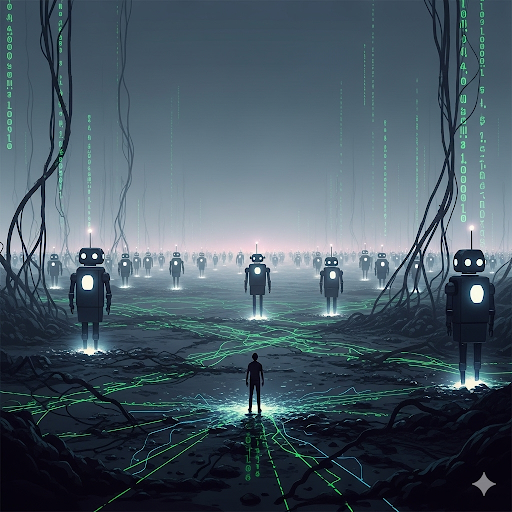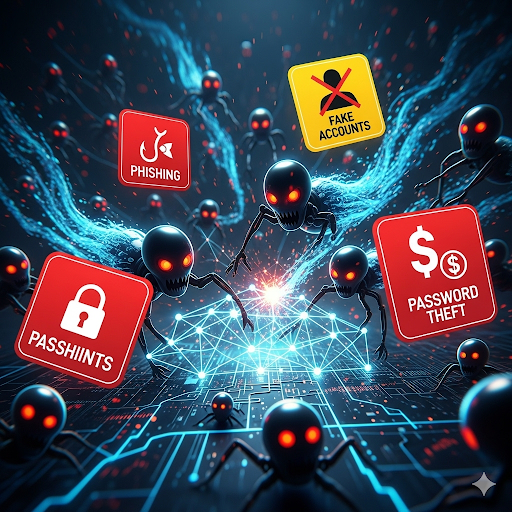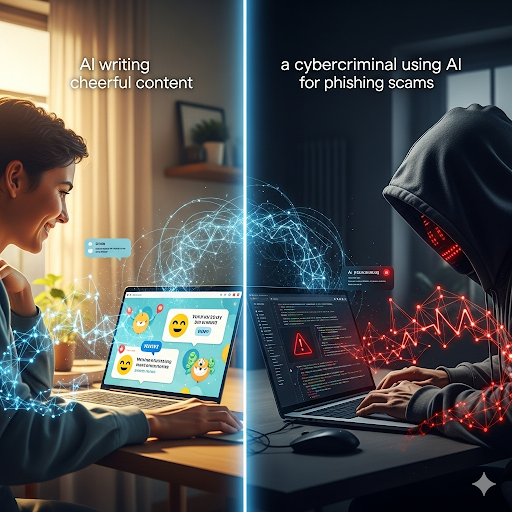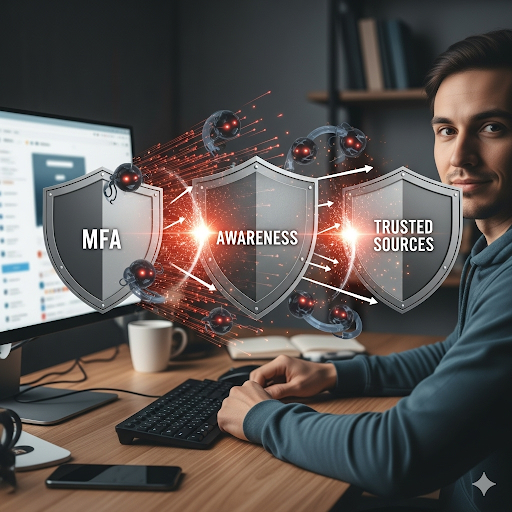Is the Internet Dead?
What is Dead Internet Theory?
Bryan Solidarios
9/8/20253 min read


Is the Internet Dead? What the “Dead Internet Theory” Teaches Us About Cybersecurity
If you’ve been online lately, you might have noticed something strange: the internet doesn’t feel as “alive” as before. Social media posts sound repetitive, trending news looks copy-pasted, and comment sections are filled with suspicious accounts. This eerie vibe fuels the Dead Internet Theory, which claims much of today’s online world is powered by bots, fake accounts, and AI-generated content.
Now, whether the theory is completely true or not, it shines a spotlight on something important: cybersecurity threats are growing as bots and AI take over the internet. Let’s explore how this theory connects to your digital safety.
What Is the Dead Internet Theory?
The Dead Internet Theory suggests that:
Most online content is AI-generated spam instead of real human posts.
Social media “trends” are boosted by bot networks rather than genuine users.
The authentic internet of the early 2000s, with forums and communities, has been replaced by corporate platforms and recycled content farms.
While some of this sounds like conspiracy, real data backs up parts of it: Facebook removes billions of fake accounts every quarter, and Twitter/X admits at least 5–15% of its users are bots.
How Bots and Fake Accounts Create Cybersecurity Risks
Bots aren’t just annoying — they are one of today’s biggest cybersecurity challenges. Here’s how:
Phishing attacks: Fake accounts spread malicious links disguised as trending news or viral memes.
Credential stuffing: Bots use stolen usernames and passwords to break into accounts.
Misinformation campaigns: Governments and hacker groups deploy bot armies to manipulate public opinion.
Ad fraud and fake engagement: Businesses lose billions yearly due to bot-driven fake clicks, likes, and website traffic.
This is exactly why cybersecurity experts warn that the rise of bots is both an economic and a security threat.
AI-Generated Content: The Cybercriminal’s New Tool
AI is powerful, but in the wrong hands, it can supercharge cybercrime.
AI-powered phishing emails look flawless now, with no typos to give them away.
Fake news websites can be auto-generated by AI, spreading misinformation at scale.
Deepfakes and impersonation scams make it easier to trick people into sending money or credentials.
This means that spotting scams with the “human eye” is becoming harder. The Dead Internet Theory may exaggerate, but it’s right about one thing: the internet is filling up with artificial content that weakens trust and increases risks.
Why the Internet Feels “Dead” — And What That Means for Security
Algorithms reward repetition. That’s why we see endless copies of the same memes, TikToks, or news headlines. While that doesn’t make the internet truly “dead,” it does create cybersecurity issues:
Fake content blends in easily. Bots hide among recycled trends.
Users trust less. When everything looks generic, it’s harder to know who’s real.
Scams get cover. Hackers exploit the noise, slipping malicious links into viral chains.
So yes — while millions of real humans are still here, the internet does feel hollow at times. That digital emptiness creates opportunities for cyberattacks.
How to Stay Safe in a “Dead” Internet
The best way to fight back isn’t paranoia — it’s smart cybersecurity habits:
✅ Enable multi-factor authentication (MFA). Even if bots steal your password, MFA blocks them.
✅ Think before you click. Hover over links and verify before trusting.
✅ Spot bot behavior. Look for vague profiles, repetitive comments, or instant replies.
✅ Stick to reliable sources. Avoid shady sites with sensational headlines.
With these steps, you can keep your digital life safe — even if parts of the internet feel like they’re run by machines.
Final Thoughts
The Dead Internet Theory may sound like a conspiracy, but it highlights a real issue: cybersecurity threats are multiplying in a world where bots, fake accounts, and AI-generated content are everywhere. The internet isn’t truly dead — but if we ignore these risks, our ability to trust and stay safe online could be.
👉 The best defense is being informed. Subscribe for more human-friendly security tips. – Bryan










For any concerns, suggestions, feedback, please contact us at support@bryansolidarios.com
© 2025. All rights reserved.
Subscribe here
AI Assistant
AI Content & Licensing Disclosure
All musical tracks and visual media under the "System Failure" project are created using a hybrid of human composition and Advanced Generative AI (Suno v5/v2026 & Image Generation).
Commercial Rights: All tracks hosted here are generated under an active commercial license.
Ownership Note: Per 2026 AI platform terms, while commercial use is granted to Bryan Solidarios, the copyright status of AI-generated outputs is subject to evolving international laws regarding non-human authorship.
Educational Purpose: This content is part of a cybersecurity awareness initiative to demonstrate the intersection of IT, AI, and digital security.